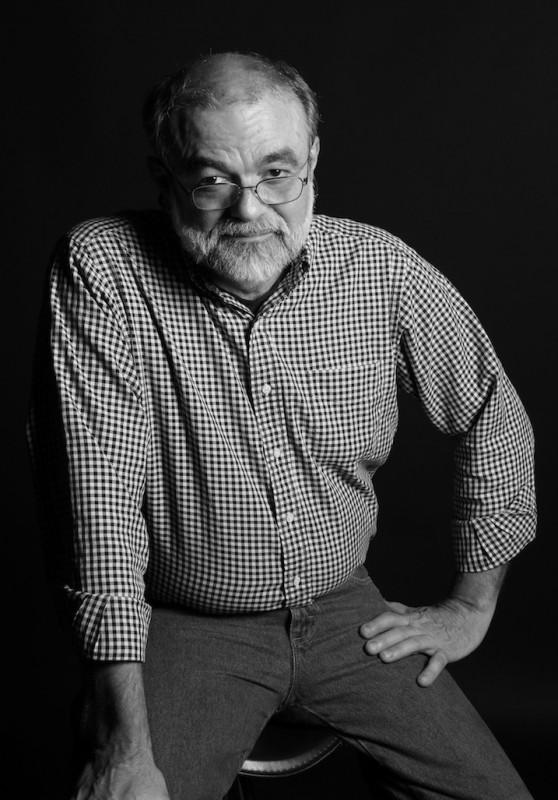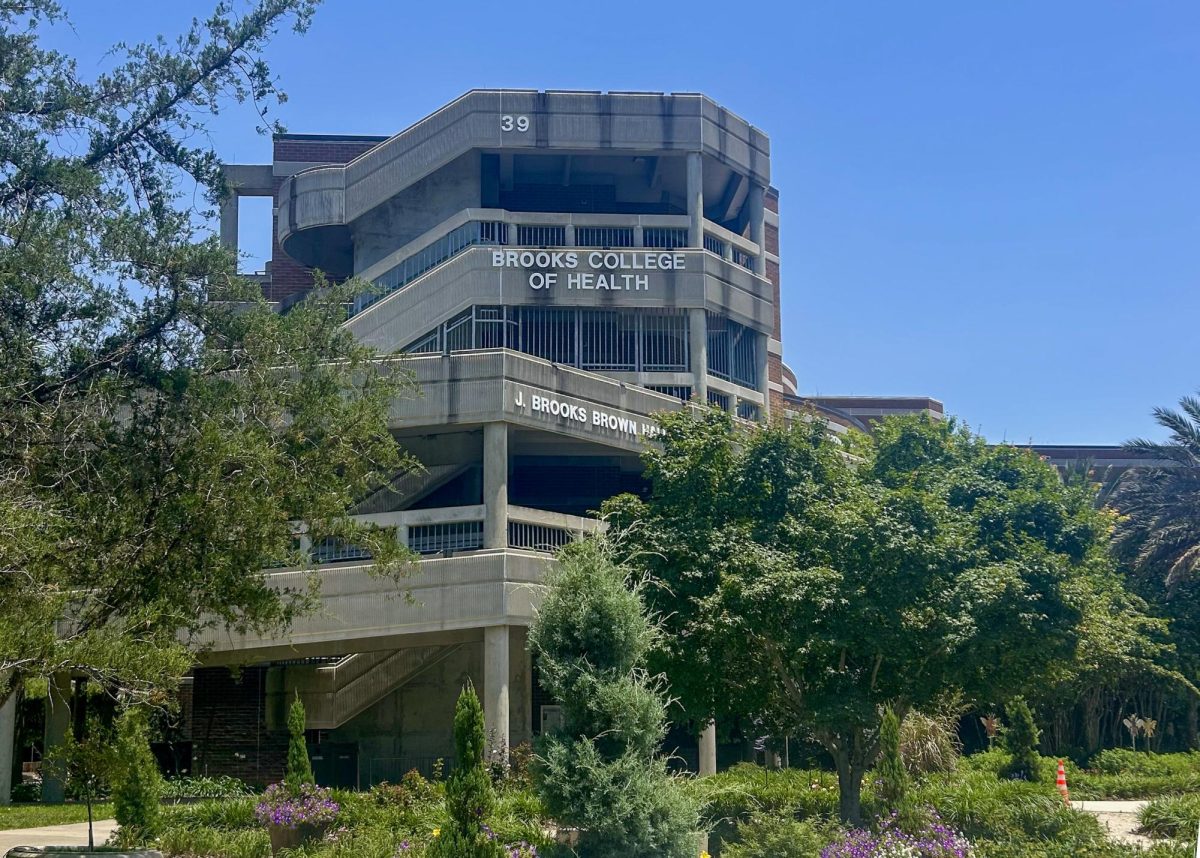
Photo by Keri Weiland
Paul Karabinis does not like being in front of a camera. Sometimes, he might not be behind a camera at all.
Karabinis has been a full-time professor at UNF since 2007. Before, he was the director of UNF’s University Gallery since 1982. Some of his classes are standard fare, such as Photohistory 1839-1916 and Intermediate Photography.
In what is perhaps Karabinis’ most unconventional course, Alternative Photographic Processes, he shows students how to make cameraless images. The processes revealed in this course are a synthesis of contemporary techniques and pre-camera era production.
“My specialty is obsolete, 19th century processes,” Karabinis said.
One method Karabinis employed to make an image sans camera was by hand brushing liquid emulsion on a piece of watercolor paper and drying it with a blow dryer. He laid a digital negative on top and left it in sunlight for five minutes. After a wash in the dark room, the paper was air-dried until the image completely appeared.
“This is just watercolor paper,” Karabinis said. “Just imagine all the different surfaces I could put [the emulsion and negative] on.”
Those surfaces include wood, metal, cloth and human skin. Karabinis said he once had students make temporary tattoos using this method.
Kristi Massey, a UNF photography senior, is taking the course. She said the class is a must for photo majors because of Karabinis’ enthusiasm for alternative processing.
The variety of alternative processes Karabinis teaches provides a great learning experience, she said.
Karabinis said the photography program at UNF is a way for students to broaden their sensibilities in photography. They will learn to have autonomy over every step of the
photographic process.
“Just like in any medium, we try to see where we can push these boundaries,” Karabinis said. “Part of that broadening occurs by reassessing and reconstructing old processes.”
Karabinis’ journey through the art of photography began as a teenager when his older brother gave him a 35mm film camera. Karabinis’ brother wanted him to make social commentary by taking a picture of a dump.
“I don’t know what he meant by that,” Karabinis said.
Karabinis would photograph his girlfriend, go to the local drug store and wait patiently for the prints. He began to enjoy the art form so much that he converted his mother’s bathroom into a dark room as a means to developing photos faster. Eventually he was relegated to the garage.
As an undergraduate at the University of Florida, Karabinis studied philosophy. After receiving his bachelor’s, he moved to Boston University and received a master’s in art history. He then moved back to the University of Florida and received a master’s in fine arts in photography.
Karabinis began teaching at UNF two months after the school’s opening in 1972. He left six months later, only to come back from 1976 to 1979. Once again, he made a brief departure before permanently coming back to osprey town in 1981.
Cassie Conklin, a UNF photography senior, said Karabinis is deeply passionate for the art form.
“He puts a lot of love into his prints,” Conklin said. “He knows how much time it takes to use old processes.”
Karabinis questions whether or not the time-efficient digital age will completely revolutionize the art.
“Whether you use a digital camera, a film camera or no camera at all, it does not matter,” Karabinis said. “The point is to make a picture.”







